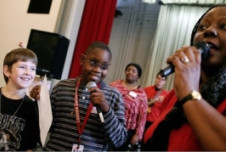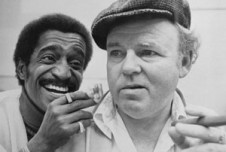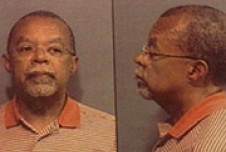Psychological studies have found that police officers are quicker to shoot black suspects than white ones, backing up what many people have suspected—and crime statistics have suggested—for years: People of color often receive prejudiced treatment from the criminal justice system.
This happens in part because police officers are human, and humans often hold unconscious racial biases, subtly affecting the way they perceive and treat others. To help police guard against these biases, several recent partnerships have developed between law enforcement officials and researchers.
In 2004, for instance, Stanford psychologist Jennifer Eberhardt organized the first conference of the Policing Racial Bias project, at which social psychologists shared their research on racial bias with representatives from 34 law enforcement agencies spanning 13 states. In 2006, the U.S. Justice Department’s office of Community Oriented Policing Services (COPS) invited Eberhardt and Lorie Fridell, a criminology professor at the University of South Florida, to COPS’s annual meeting to discuss how law enforcement agencies can respond to research on the causes of racial bias.
Last year, Fridell began helping the San Francisco Police Department implement a program designed to produce fair and impartial policing. One aspect of this project, the first of its kind in the nation, trains officers and their supervisors to recognize their unconscious racial biases. Officers will engage in simulations in which they must make snap judgments about suspects, then step back and review how those judgments may have been swayed by the suspects’ race.
“Officers need to be aware that they can be good people and still have biases—sometimes unconscious ones—that are linked to race,” says Fridell. Building on the SFPD’s program, Fridell and colleagues are developing anti-racial bias curricula that will be made available to every police department in the country within a year. The project is being funded by the Justice Department’s COPS office. “The work Fridell is doing helps add to a mutual level of trust and respect between police departments and the citizens they serve,” says Gilbert Moore, a COPS spokesperson. “In order to have that, police departments have to be seen as just. They have to be seen as unbiased.”





Comments